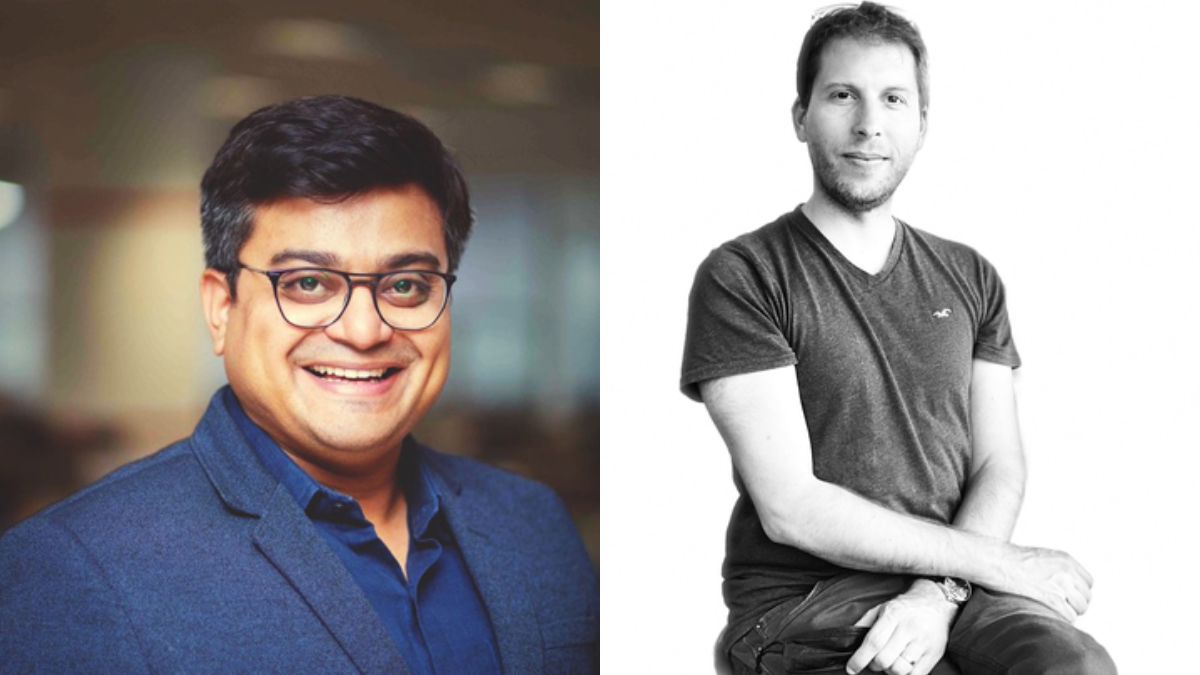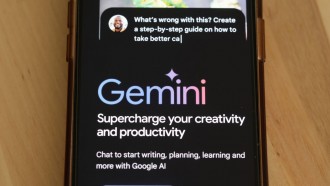
Necessity may be the mother of invention, but two fathers are developing state-of-the-art technologies to leave the world a better place for their kids.
Several years ago, Sam Weitzman, then a Tel Aviv-based investment banker, had taken his family to a community pool when he and his wife became distracted by a quick photo op. By the time Weitzman turned around, his son Josh had sunk to the bottom of the kiddie pool. "Even though the water was shallow, I could see that he was struggling," the young father recalls. "He was gasping for air, but alive. That shook me up pretty substantially." Weitzman soon began thinking about how much worse it could have been - and how such a scenario might be prevented with new technologies.
For Soudip Chowdhury, a professor and veteran of big tech, inspiration came in a less precarious fashion. He was teaching his young daughter about the arctic, and suddenly realized that some of the animals would become extinct due to the crisis of man-made climate change. Armed with a PhD in machine learning (ML), Chowdhury started theorizing how artificial intelligence, or AI, might be used to save some of those endangered species.
"I learned how to simulate and mimic the future to see how my daughter's life will be when she comes of age," Chowdhury says. "I felt that she and her generation should not have to face any negative consequences due to their parents' actions." The result was a technology suite that reduces the carbon footprint of manufacturing companies by enhancing operational efficiency using AI and ML. It was launched under the brand Eugenie.ai in 2018.
Weitzman was not a techie by trade or education, though banking had honed his skills in critical thinking, problem-solving, and networking. "Creativity was key in terms of putting together transactions and deals," he recalls. "Near the time of the pool incident, I was working on a couple of deals where deep learning was becoming involved. I knew that integrating computer vision, AI, and the cloud to create a mobile pool monitoring app would be a pretty hefty technological challenge."
Weitzman left his banking job and started pursuing what would become PoolScout full time. By the end of 2017, he had refined the concept and met the big players in the pool industry. "They made it clear that the technology was very interesting to them," Weitzman recalls.
Around this time, Chowdhury was also finding new ways to use AI and ML, but it was his daughter's inquisitive nature, her ability to quickly learn new skills, and her innate affinity toward nature that really impressed him. "She motivates me every day to become a better human being and be better at my work as an entrepreneur," he says. "Fatherhood has inspired me to be more empathetic and think beyond the present."
Eugenie.ai has become a way for Chowdhury to teach his children to value the planet's resources. "Reducing waste, mindful consumption, and acting responsibly as a global citizen - those are the priorities," he says. "I've now come to realize that social science and humanities studies are just as important as those in STEM. I encourage my daughter to observe and learn from experiences that the environment and ecosystem have to offer. Of course, I still evangelize the responsible use of technology like AI to empower everyone on the planet to live a prosperous life."
While Chowdhury is using AI to reduce carbon emissions decades from now, for Weitzman, the rewards have come much faster. Last year, PoolScout launched a beta program in several hundred homes in the United States, Australia, and Israel. Not long after, his team received a call from a father who said that PoolScouthad saved his child.
"We didn't know about it," recalls Weitzman. "That was obviously a proud moment and something that was very impactful. A kid being saved by a development that you've done typically isn't something you get in a 9-5 job." Just a few weeks later, Weitzman learned of another youngster saved by PoolScout who had been scared off of entering her family's pool when the PoolScout alarm had gone off. Her family had assumed she was taking a nap. PoolScout has adopted a "continuous improvement" model that relies both on human feedback and machine learning, though Weitzman does not consider technology a substitute for human supervision or other safety measures such as fences.
For Weitzman, innovation through AI is by no means limited to pool safety alone. He, along with his team, have already expanded the application of the same core cloud-based computer vision technology into new life-changing applications.
Chowdhury, too, has not lost sight of the human aspect of the technology he has developed. "We believe that we are at a pivotal moment in history where our actions can determine the quality of life for future generations," he says. "Nature's resources are not infinite. A sense of gratitude for the fortunes bestowed upon us is something that parents and educators need to teach our children."
* This is a contributed article and this content does not necessarily represent the views of techtimes.com









